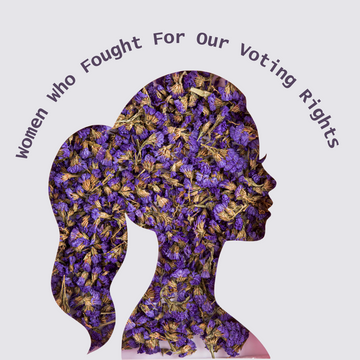In 1920, women in America won the right to vote after a long fight led by amazing leaders like Susan B. Anthony, Alice Paul, Elizabeth Cady Stanton, Lucy Stone, Ida B, and Mary Church Terrell. Wells. They spoke up, marched, and worked hard for equality. Their efforts remind us that women can do great things for our nation. International Women's Day celebrates their achievements and reminds us of the importance of equality for all women worldwide.
Susan B. Anthony, 1820-1906
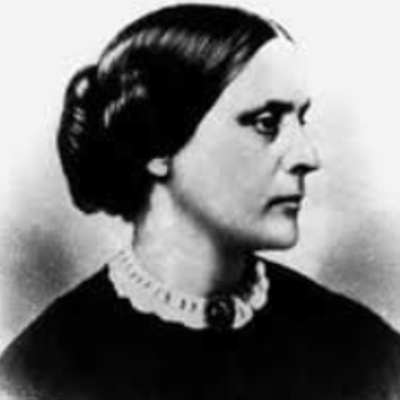
Susan B. Anthony, a trailblazing figure in American history, began her journey as an activist by championing the abolition of slavery. Growing up in upstate New York, she imbibed the values of equality and justice from her Quaker upbringing. At just sixteen, Anthony started collecting anti-slavery petitions and soon became deeply involved in the cause.
In 1851, Anthony crossed paths with Elizabeth Cady Stanton, sparking a lifelong friendship and collaboration in the fight for women's rights. Together, they dedicated themselves to securing the women's ballot, even though they themselves could not yet cast it.
One of the lesser-known chapters of Anthony's legacy lies in her ties to Utah. In 1870, she and Stanton visited the territory to congratulate Utah women on being the first in the modern nation to exercise voting rights. Despite her opposition to certain practices, Anthony staunchly supported the suffrage rights of Mormon women. She formed enduring friendships and offered mentorship to Utah suffragists, even during challenging times such as when Congress revoked the voting rights of Utah women in 1887.
Anthony's influence extended beyond her lifetime. She mentored Utah suffragists in their quest to include a clause guaranteeing women's suffrage in the state's constitution, which ultimately came to fruition in 1895. Utah became the third state to grant women the right to vote, following Wyoming and Colorado.
Throughout her life, Anthony exemplified resilience and determination. Her motto, "Failure is impossible," continues to inspire generations of activists. Even after her passing in 1906, her legacy lived on, celebrated by a memorial service in the Salt Lake Tabernacle.
Susan B. Anthony's story serves as a beacon of hope and empowerment, reminding us of the tireless efforts of women throughout history to secure equality and justice for all. It's a testament to the power of perseverance and collective action, inspiring young minds to stand up for what they believe in and work towards a more equitable future.
Alice Paul, 1885-1977
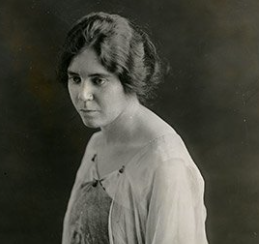
Alice Paul grew up on Paulsdale farm, where her parents instilled in her the values of equality and service to society. Raised in a Quaker household, Alice was taught from an early age that men and women were equal. Her upbringing and education at Swarthmore College further reinforced these beliefs.
Inspired by the suffragette movement in England, Alice became a passionate advocate for women's right to vote. She joined the fight alongside leaders like Christabel Pankhurst, facing arrests and imprisonment for her activism. Despite the dangers, Alice and her fellow suffragists persisted, staging protests and hunger strikes to demand equality.
Their efforts eventually led to the passage of the 19th Amendment, granting women the right to vote. Alice Paul's legacy lives on through the Alice Paul Institute, which educates and empowers women to become leaders in their communities.
Alice Paul's story teaches us the power of perseverance and courage in the face of adversity. Her dedication to equality inspires us to stand up for what is right and to never give up on our dreams of a more just and equal world.
Elizabeth Cady Stanton, 1815-1902
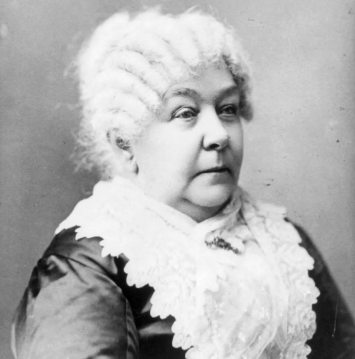
Elizabeth Cady Stanton, born in 1815, was a pioneering figure in the women's rights movement in the United States. Educated at home and later at institutions like the Troy Female Seminary, she became acutely aware of the discriminatory laws against women while studying law with her father, a congressman and judge.
In 1840, she married Henry Stanton, an abolitionist, and together they attended the World's Anti-Slavery Convention in London, where she witnessed the exclusion of women delegates. This event ignited her activism for women's rights.
In 1848, Stanton and Lucretia Mott organized the historic Seneca Falls Convention, where Stanton presented the Declaration of Sentiments, demanding equal rights for women. This convention marked the beginning of the women's rights movement in the United States.
Stanton collaborated closely with Susan B. Anthony for over five decades, advocating for women's suffrage, property rights, and divorce reform. Despite facing opposition, they tirelessly campaigned, spoke before legislative bodies, and published articles advocating for women's rights.
During the Civil War, Stanton continued her activism, co-founding the Women's National Loyal League to advocate for emancipation. Post-war, she fought against the exclusion of women from the suffrage movement.
Stanton's efforts culminated in the formation of the National Woman Suffrage Association in 1869, and she played a key role in drafting suffrage amendments and compiling the History of Woman Suffrage.
Her legacy includes groundbreaking works like The Woman's Bible and an autobiography, Eighty Years and More. The tireless efforts of Stanton and her contemporaries paved the way for the eventual passage of the Nineteenth Amendment, granting women the right to vote in 1920.
Their enduring commitment to equality serves as a beacon of inspiration for future generations, reminding us of the power of perseverance and activism in the pursuit of justice and equality for all.
Lucy Stone, 1818-1893
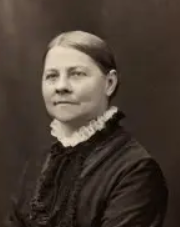
Lucy Stone was a trailblazer in the women's rights movement, born in 1818 in West Brookfield, Massachusetts. Growing up in a household that followed patriarchal traditions, she yearned for change. Determined to pursue education, she worked tirelessly for nine years as a teacher and housekeeper to save money.
Stone made history in 1847 when she became the first female student from Massachusetts to get a bachelor's degree from Ohio's Oberlin College.. Her passion for equality led her to become a prominent public speaker, advocating for women's rights and against slavery across the United States.
In 1850, Stone played a pivotal role in organizing the National Woman’s Rights Convention, drawing attention to the rights of black women internationally. Notably, she kept her maiden name upon marrying Henry Blackwell, challenging the convention of women taking their husband's last name.
Stone's activism extended beyond speeches and conventions. She co-founded the Woman’s Journal, a newspaper dedicated to women’s suffrage, with her husband. Despite facing opposition and division within the movement, Stone remained steadfast in her pursuit of equality.
Her legacy endured through her daughter, Alice Blackwell, who helped reconcile the divided suffrage movement in 1890. Lucy Stone's unwavering dedication inspires us to recognize the courage and resilience of women who fought for their rights, shaping history for generations to come.
Ida B. Wells, 1862-1931
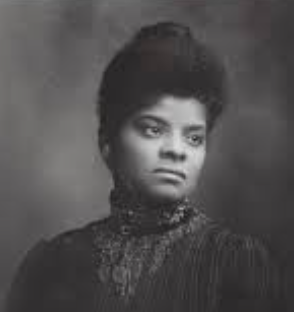
Ida B. Wells was born in 1862, just after the Civil War ended and slavery was abolished. While she didn't experience slavery herself, she grew up hearing her parents' stories and witnessing the scars of their suffering. Raised in Mississippi during Reconstruction, Ida's parents emphasized education and independence.
At 16, tragedy struck when Ida lost her parents and became the head of her family. She worked hard as a teacher and caretaker, eventually moving to Memphis, Tennessee, where she faced discrimination under the Jim Crow laws.
Ida's life changed when her friend was lynched by a mob in 1892. Determined to fight against injustice, she became a fearless journalist, exposing the horrors of lynching and advocating for change. Despite facing threats and violence, she never backed down.
Ida also fought for women's rights, believing in the power of suffrage to bring about change. She co-founded the Alpha Suffrage Club and marched alongside other women for the right to vote.
Her legacy lives on as a beacon of courage and determination. In 2020, she was posthumously awarded a Pulitzer Prize for her fearless reporting. Ida B. Wells inspires us to stand up for what is right and never stop fighting for justice.
Mary Church Terrell (1863-1954)
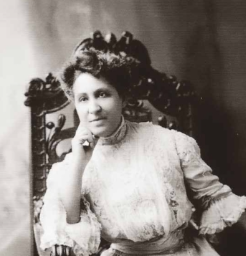
Mary Church Terrell was born into a world where people like her were often treated unfairly because of their race and gender. Despite facing challenges, she became a powerful leader in the fight for equality.
Growing up in Memphis, Tennessee, Mary's parents taught her the value of education and standing up for what is right. She attended Oberlin College, where she met inspiring activists like Susan B. Anthony and Frederick Douglass.
After college, Mary became a teacher, but she didn't stop there. She used her voice as a writer and journalist to speak out against injustice. Mary faced discrimination herself, but she never let it stop her from fighting for what she believed in.
One of Mary's most important causes was women's right to vote. She joined the suffrage movement and worked tirelessly to ensure that all women, regardless of their race, could have a say in their country's future.
Mary didn't just fight for women's rights; she also fought against racism. She spoke out against lynching, segregation, and discrimination, even when it was dangerous to do so. Mary was fearless in her pursuit of equality.
Throughout her life, Mary inspired others to stand up for justice. She helped create organizations like the National Association of Colored Women, which worked to uplift and empower African American women.
Mary's legacy lives on today through the people she inspired and the change she helped bring about. Her courage and determination remind us that one person can make a difference, no matter how difficult the odds may seem.
Mary Church Terrell's story teaches us that even in the face of adversity, we can all work together to create a better, fairer world for everyone.
International Women's Day celebration Ideas
Educate Yourself: Learn about women's rights and gender equality by reading books, articles, or watching documentaries on the subject.
Recognize Achievements: Celebrate the accomplishments of women worldwide, whether it's through social media campaigns or acknowledging the women in your own life.
Community Celebration: Honor the achievements of women in your community by organizing events or simply recognizing their contributions at work or in your neighborhood.
Mentorship Program: Create mentorship opportunities for women in the workplace to promote career development and guidance.
Charity Drive: Give back to women-focused charities or organizations through fundraising, donations, or volunteering activities.
Employee Recognition: Recognize the achievements of women in your workplace to promote gender equality and inclusivity.
These activities help children understand the importance of supporting women's rights and celebrating the achievements of women in their communities and around the world.


